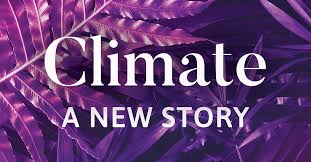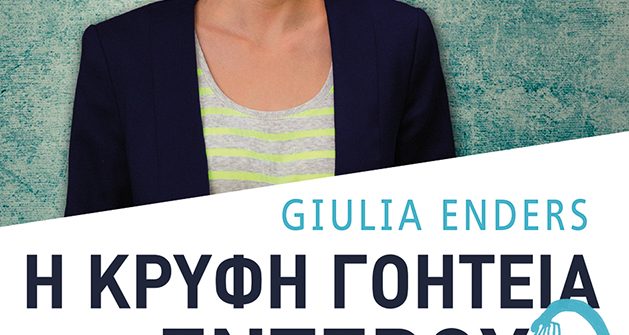
Climate: A New Story by Charles Eisenstein
My rating: 5 of 5 stars
I first found out about Charles Eisenstein through his amazing essay The Coronation (audio version read by him here), where he looked at the coronavirus pandemic crisis as a crisis of humanity, its collectively pernicious relationship with death and its obsession with safety.
Then I listened to this discussion with Rebel Wisdom on roughly the same topic, and his appearance on the Rune Soup podcast where he presented his new book, Climate: A New Story.
What can I say? I’m positively stunned by this man. Very clear writing, solid arguments, a real plan, a holistic, systems-thinking worldview… and a love for nature I didn’t think was possible outside people who usually cannot express themselves in writing as concisely as Mr. Eisenstein.
As far as I’m concerned, if you consider yourself an ecologist, you must give Climate: A New Story a read. It will rock your world and make your question how much of a true ecologist you really are. And I’m leaving this with you in as positive and empowering a way as possible.
I’ve gathered together many of my clippings from my Kindle read and added headlines. I hope they give you an idea of what to expect.
Why ecosystems and ecology are intrinsically interlinked:
The crucial role of living systems in maintaining climate stability presents us with good news and bad news. The good news is that our world can survive, that it can potentially adapt to higher levels of greenhouse gases.
The bad news is that the ecosystems that can do this are in steep decline all over the world. That means, given positive feedback loops that are already releasing large amounts of carbon and methane from nonhuman sources, climate instability will continue to worsen even if we cut fossil fuel use to zero, unless we also heal and protect the forests, mangroves, seagrass, and so on. […]
To me the prospect of humanity persisting on a dead, denuded planet is more alarming than a future without humans.
On why renewables won’t save us and definitely not the planet:
Conceivably, we could find another fuel source and maintain the addiction to a system of economics and production that consumes the world.
On love:
Love is the expansion of self to include another, whose well-being becomes part of one’s own.
On compassion to our adversaries:
Does this mean we might as well give up on change? No. It means we need to ask, What are the circumstances that give birth to the choices that are harming the world? Engaging other people, we have to ask the question that defines compassion: What is it like to be you? The more we understand, the more we live in reality and the less we inhabit a fantasy world populated by our projections.
On the futility of quantifying the world:
The totalizing quest to capture the world in number never succeeds. Something always escapes the metrics and the models: the unmeasurable, the qualitative, and what seems irrelevant. Usually, the judgment as to what is relevant encodes the intellectual biases of those doing the measuring, and often the economic and political biases too. You might say that what is left out is our shadow. Like many things we ignore or suppress, it roars back in the form of perverse, unforeseeable consequences. Thus, although it is the epitome of rationality to make decisions by the numbers, the results often appear to be insane.
Is data really objective?
Thus, what we observe to be happening in the world says as much about ourselves as it does about the world.
On fatalism:
What does it matter, when one party disengages because they think there is no problem, and the other disengages because they think there’s no solution? […] Indeed fatalism is a mind-set that strengthens the trends that generate it by fostering compliance to those very trends. The compliance that fatalism effects is invisible to the fatalistic thinker, who does not regard him or herself as a conformist, but simply as a realist.
On scientific orthodoxy:
Dissidents complain about the difficulty they have obtaining research funding, getting published in journals, and getting their arguments taken seriously. Meanwhile, the defenders of orthodoxy cite the self-same lack of peer-reviewed journal publication as reason not to take unorthodox theories seriously. Their logic is basically: “These theories are not accepted; therefore they are not acceptable.” That is confirmation bias in a nutshell.
On why just measuring emissions is a really bad idea:
It isn’t only forests whose living complexity far exceeds our ability to measure, quantify, and reduce to data. What number should we give the climate contribution of sea otters? They don’t sequester carbon—but they keep down populations of sea urchins, which when unchecked destroy kelp forests that do absorb carbon and alkalize seawater, allowing shellfish to absorb even more carbon.
Wildlife in the current paradigm:
Lucky thing for the fish that they are saving us money. Lucky thing for the employees that they are more profitable healthy than sick. Lucky thing for the honeybees that they provide such economically valuable services. But too bad for anything or anyone whose value registers low on our meter. Do you know that feeling of enchantment on seeing a rare bird or on having a close encounter with an animal, seeing an eagle over the water, a whale spouting in the sea? Can you quantify how much poorer you would be without those beings? Come on, give me a number. Then we will know whether these are worth protecting.
Taking the sacredness of nature seriously:
If a forest is sacred to you, then how much would I have to pay you to cut it down? No amount would be enough, just as no amount of money would be enough to induce you to offer your mother or child for extermination.
On holistic medicine and verifiability:
The same point applies to holistic medicine. Because each body is unique, true holistic medicine is resistant to validation through controlling variables across standard diagnostic and therapeutic categories.
On aborigines in Australia exercising creative non-violence to protect their habitat, and winning:
As tensions were reaching their peak, Dan proposed an idea to a group of aborigines at the site. Everyone felt the foreboding that they were entering a losing battle, so why not try something else? Since they knew media helicopters were coming, why not make giant art installations visible from the air for them to film, instead of the usual script of police arresting activist hippies? The aborigines loved the idea, brought out their dreaming stories, and soon had sketched designs for two-hundred-foot giant rainbow serpents and other figures to be drawn on the ground with sacred ochre. They also planned to greet the police ceremonially, with giant fires making sacred eucalyptus smoke, and five hundred men painted in ceremonial colors with clapping sticks and didgeridoos. The next morning Dan got a phone call. The government had canceled the fracking license.
On why luck favors the bold:
Have you ever noticed in life that the most striking synchronicities seem to happen in times of uncertainty? When one moves to a new city without a plan, or travels without an itinerary, or does something out of the ordinary with no idea of what will happen, then quite often an amazing (sometimes life-changing) things happens.
[…] It is not enough to “send positive energy.” A sacrifice of some sort is required, something that involves risk or loss. It might be the sacrifice of time, energy, and money. It could be a sacrifice of certainty or control, an act that feels like a step into the true unknown. It could be a demonstration of commitment that feels real to you.
Pesticides in a nutshell, and why they need to be banned now:
We have basically conducted an eighty-year experiment to see what happens to the biosphere when we constantly dump poison into it. Life is resilient, so the effects were hard to notice at first, but they have gathered now to critical mass.
Ending on a hopeful note, on imagining what’s possible, not what’s realistic:
All of the policies and practices I have described are within reach right now. The vision of a Green World is not fantasy; nor, however, is it realistic. What it is, is possible. It requires each one of us to dedicate ourselves, unreasonably and with no guarantee of success, to our unique form of service. It requires that we trust our knowing that a healed world, a greened world, a more beautiful world is truly possible. I hope this book has amplified that calling and trued you to that possibility.










